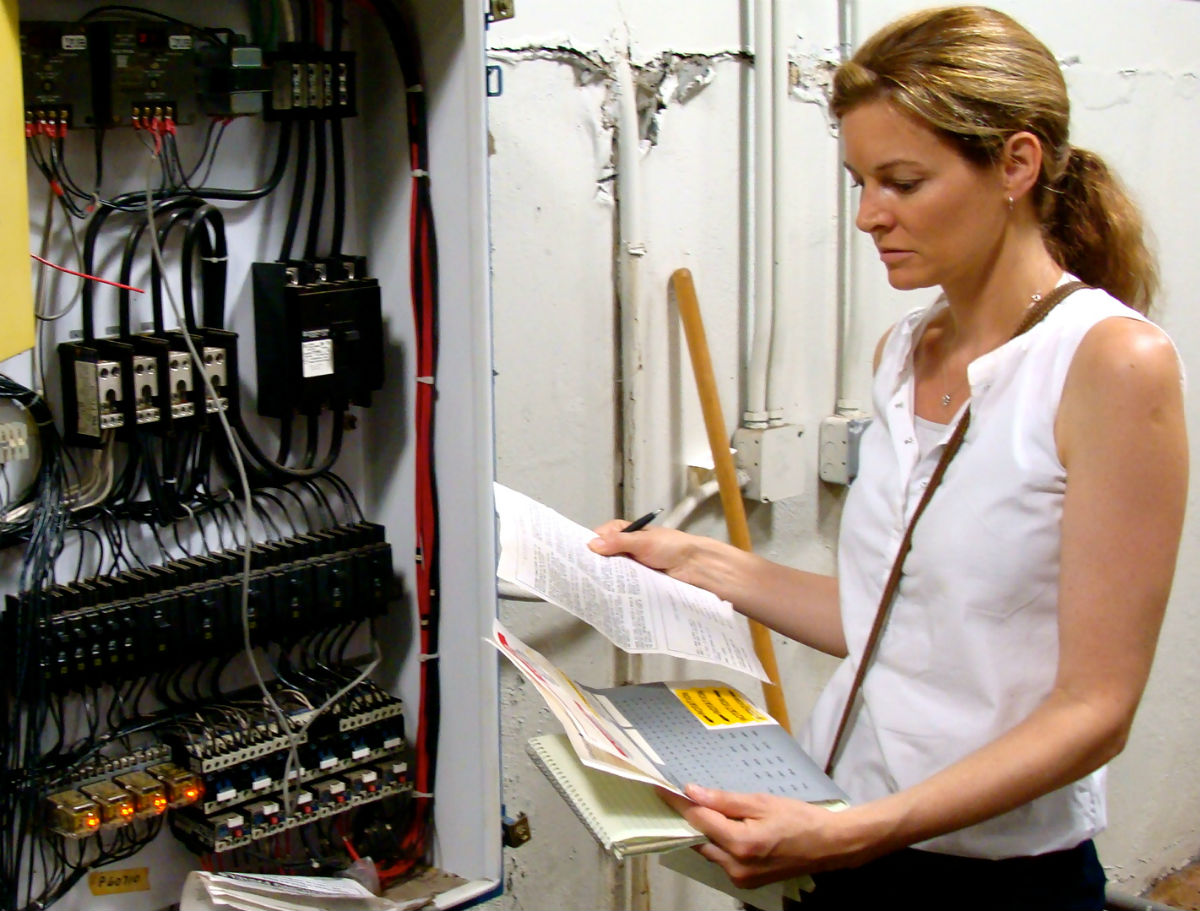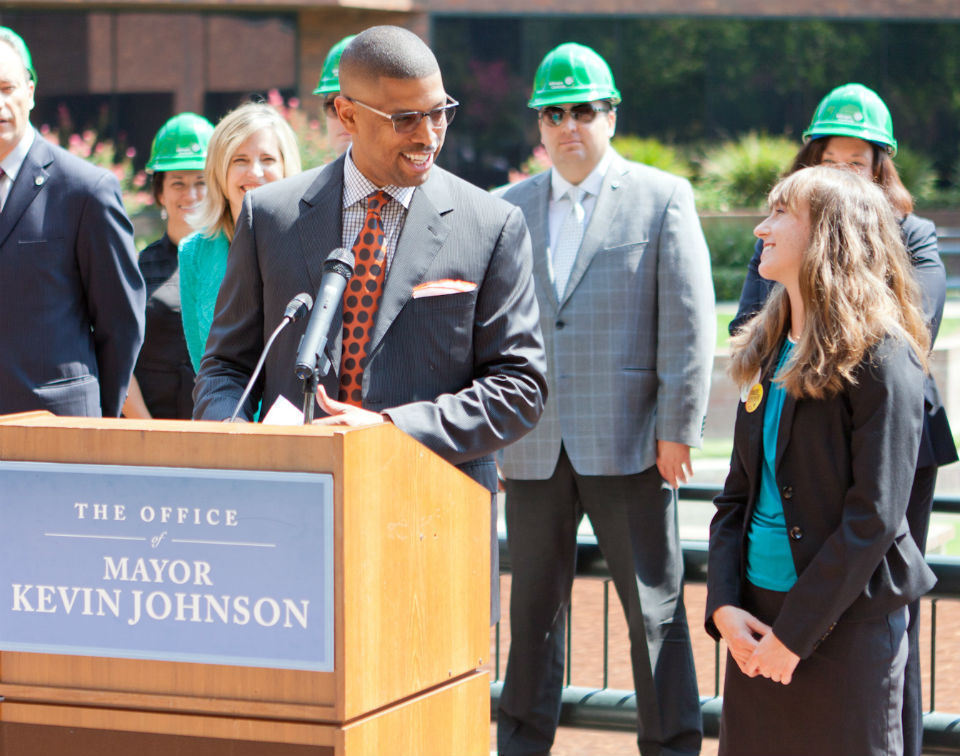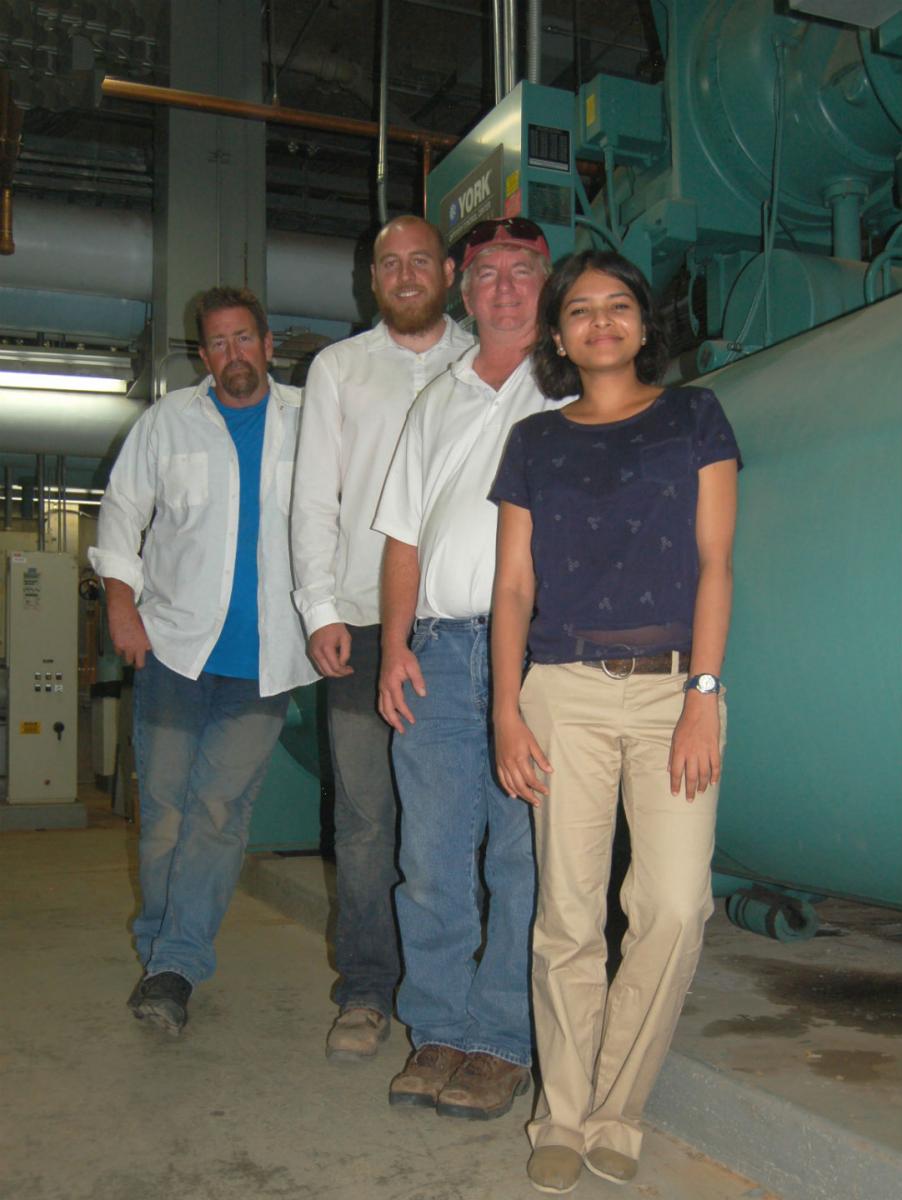EDF Climate Corps fellow | August 12, 2013
This summer, 45 women chose to work with EDF Climate Corps to further energy efficiency and make the world more “pleasant, healthy and sustainable.” Read below to learn about three of our ladies in green, Jennifer Barbour McKellar, Kate Daniel and Sudatta Ray and the great work they are doing to break down the barriers to organizational energy efficiency.
Name: Jennifer Barbour McKellar
Hometown: Kingston, Ontario, Canada
School: Columbia University
Host Organization: Newark Public Schools
Q: Why did you join EDF Climate Corps?
A: I joined EDF Climate Corps to gain hands-on experience managing projects aimed at improving the energy efficiency of buildings. Ultimately, I would like to apply the skills I gain, toward the advancement of city-scale sustainability initiatives. My dream job would involve developing policies and programs that improve city energy, water and transportation flows via the integration of new technologies, innovative urban design and behavior modification.
Q: What are you working on this summer?
A: Newark Public Schools is currently implementing an Energy Savings Improvement Program, taking advantage of incentives offered by the state of New Jersey. I am working on a number of projects that support this effort including the development of tool that will identify which buildings possess the largest potential for energy and cost savings, an analysis of current district operations and maintenance practices and, time permitting, a student engagement program.
Q: What is one thing you’ve learned this summer?
A: The importance of maintaining a critical view of technology. Specifically, recognizing its limitations. I love technology because of the increased convenience, efficiency and cleaner processes it promises, but it can be rendered useless quickly without sufficient human management. Source data will always require verification, equipment will always need to be properly maintained and processes must continually be reviewed as operating conditions and goals change over time.
Q: What has been the best part about working at Newark Public Schools?
A: The possibility that social benefits could result from the projects that I have contributed to. For example, energy cost savings from the installation of more efficient equipment and the implementation of improved processes could be redirected to improve educational programming.
Q: What is the mark you want to leave on the world?
A: I would like to play a quantifiable role in making cities more pleasant, healthy and sustainable places to live.
 Name: Kate Daniel
Name: Kate Daniel
Hometown: Clifton Park, NY
School: Goldman School of Public Policy, University of California, Berkeley
Host Organization: Greenwise Joint Venture
Q: What are some of the projects you’re working on?
A: I’m working on sharing information about Property Assessed Clean Energy (PACE), a type of clean energy financing where property owners can receive funding for an energy efficiency, renewable energy or water conservation projects and pay the costs back on their property tax bill. PACE programs are active in California, but not lot of people are aware of them. There are several different models involved and there is a large need for information about how the different models work, where they are available and who provides them.
Q: Have you encountered any difficulties or barriers?
A: It’s difficult to tell what the most pressing needs are. The background research has turned out to be more of an ongoing process than I initially thought. There are a lot of different angles to the issue, and many different stakeholders with different needs.
Q: What is one thing you’ve learned this summer?
A: It’s great to see how nicely all these different aspects of energy and climate policy come together. There are strong connections between energy financing, the climate resilience issues that Greenwise is working on and the President’s recent announcement on national climate policy. It’s important to recognize that none of these policies operate in isolation.
Q: What has been the best part about working at Greenwise Joint Venture?
A: I’ve met a lot of really inspiring people. Greenwise only has two full time employees, but their network and impact is huge. I love seeing folks working on sustainability in this area that are so inspirational, highly motivated and effective.
Q: What is the mark you want to leave on the world?
A: It’s the theme of one of my favorite childhood books – Miss Rumphius. The main character pledged to do something to make the world a more beautiful place. I work on sustainability to do just that, or at the very least, to preserve the beauty we already have.
 Name: Sudatta Ray
Name: Sudatta Ray
Hometown: New Delhi, India
School: Carnegie Mellon University
Host Organization: Glendale Community College (GCC)
Q: What is an interesting fact about you?
A: An interesting fact about me is at 23, I was the youngest member of my country’s negotiating team to the Conference of Party (COP) meetings at the United Nations Framework Convention on Climate Change (UNFCCC).
Q: Why did you join EDF Climate Corps?
A: EDF Climate Corps was an ideal program for me to continue my education and develop my experience in environmental sustainability. Prior to graduate school, I worked for the Ministry of Environment & Forests and a large not-for-profit organization on the broader aspects of climate policy in India. In the recent years, I have become particularly interested in the issue of energy and climate change since there is a big energy problem in my home country (about 600 million people lack access to electricity). Through the EDF Climate Corps program, I have learned many nuances of implementing energy efficiency projects into a given socio-economic context.
Q: What are you working on this summer?
A: At GCC I’m conducting a data-driven analysis to determine how the campus can better utilize their HVAC system. Since during the summer, the campus conducts classes and organizational business Monday through Thursday, the vast majority of the campus does not get used Friday, Saturday and Sunday. I’m trying to monetize cost savings by turning off unoccupied buildings on the weekends and by consolidating building use during the workweek.
Q: Have you encountered any difficulties or barriers?
A: Catering to two broad categories of stakeholders, administrators and faculty, is challenging, especially considering both employee groups have almost equal say in policy implementation. While the two groups share the core belief that student success is the primary focus at GCC, both parties have other agendas that they each value.
Q: What are some ways you’ve found to overcome those difficulties?
A: Building positive relationships with individuals has been my approach to creating a collaborative work environment. In part, being from India has worked in my favor. Most people here are interested to learn more about my country and my culture. Since I am open to sharing my experiences, conversations are quick and easy to start, which facilitates opportunities for me to talk about my projects and to gauge reactions and to receive ideas on improvement.
This post is a part of our "Interviews with Tomorrow's Leaders" series. Stay tuned for more interviews with our 2013 EDF Climate Corps fellows!
About EDF Climate Corps
EDF Climate Corps (edfclimatecorps.org) taps the talents of tomorrow’s leaders to save energy, money and the environment by placing specially-trained EDF fellows in companies, cities and universities as dedicated energy problem solvers. Working with hundreds of leading organizations, EDF Climate Corps has found an average of $1 million in energy savings for each participant. For more information, visit edfclimatecorps.org. Read our blog at edfclimatecorps.org/blog. Follow us on Twitter at twitter.com/edfbiz and on Facebook at facebook.com/EDFClimateCorps.